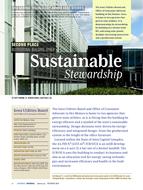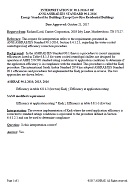Considering the econamic importance of the crops, cut flowers have received inadequate attention concerning postharvest biochemistry, pathology, physiology and technology. In a recent paper, Rogers (2) reviews postharvest physiology research on cut flowers. Lutz and Hardenburg (1), in a comprehensive compilation of information on the storage of perishable commlodities, give recommended storage conditions for cut flowers but present little information on the basis for recommendations.
Historically, the cut flower industry has been primarily a specialty supplier of florists. However, it appears possible that the industry may turn to mass marketing via supermarkets prowided the distribution technology ean be developed to deliver a high quality product at reasonable cost. Major needsa in developiug a mass marketing system are: 1) efficient packaging and handling systems, 2) a low cost, efficient transportation system, 3) temperature management; ability to cool the product initially and to keep the taperature low thereafter, 4) accumulation of data to assess campatibility of cut flowers with other perishables in mixed loads, 5) development of appropriate consumer units for each species, and 6) development of facilities and training of personnel needed to properly store, display and sell the flowers.
Our experience has been largely with California-grown carnations and roses and our data are concerned with these species. However, the principles imrolved are probably applicable to most cut flowers.
Citation: Symposium, ASHRAE Transactions, Volume 80, Part 1, Los Angeles, CA
Product Details
- Published:
- 1974
- Number of Pages:
- 6
- File Size:
- 1 file , 420 KB
- Product Code(s):
- D-LA-74-06-3


